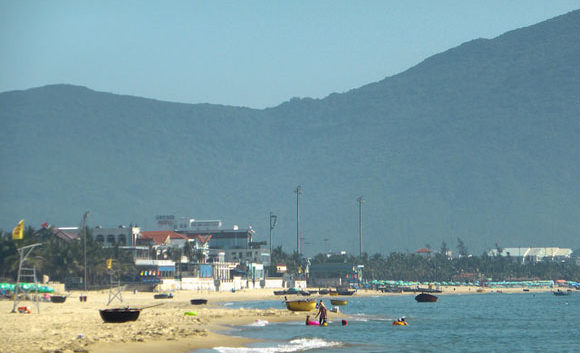Visas and Residence in Vietnam
Vietnam is one of the most spectacular countries on earth. It has more than a thousand miles of coastline, gorgeous mountains, forests, waterfalls, and amazing caves. The cuisine is famous for being not only delicious but good for you, too. It has vibrant and dynamic cities. The culture is a fascinating mix of ancient and modern, with influences still evident from its tumultuous history with the Chinese, the French, and the U.S.
Vietnam is a wonderful country to visit for a short stay, but for the vast majority of remote workers and retirees, it’s not possible to stay long-term…at least not at this time.
Only citizens of 80 countries, including the U.S., U.K., and Canada, can visit Vietnam independently; everyone else is allowed entry only if they are on an organized tour.
Vietnam allows the citizens of some western countries visa-free entry for 15 days or less, but most visitors will need to prearrange a visa. Citizens from Chile can remain in Vietnam visa-free for 90 days; all other foreigners from the 80 approved countries must have a visa for any stay longer than 15 days.
U.S. and Canadian citizens are not eligible for the 15-day Vietnamese visa exemption but can visit the country independently, with no need for an organized tour, as long as they have a pre-arranged e-visa, which is valid for a maximum of 30 days from the date of proposed entry.
If you wish to apply for a tourist visa, your passport must not expire for at least the next six months. Go to the National Web Portal on Immigration’s official website, upload the data page of your passport that has your passport photo, complete the application, and pay a $25 fee. Though the website states that the application will be processed within three days, it often takes a week or longer, so allow ample time for this before your flight is scheduled to depart.
In cooperation with the immigration department, visa agents used to be able to issue visa approval letters for tourism and many of them continue to advertise their services to foreigners who want to enter Vietnam. Visa agents no longer have any legal authority to arrange tourist visas in Vietnam, though they may help facilitate other types of visas, as discussed below. Many people have paid hundreds of dollars to an agent for visas that never materialize. There is no legal system in place where a victim of this kind of fraud can seek redress.
The only legal way to get a tourist visa is through the National Web Portal on Immigration.
At the time of writing, it isn’t possible to get a visa for tourism purposes with a validity of longer than 30 days, and Vietnam does not offer a retirement visa. Some people manage to stay longer by leaving the country at the end of their 30 days, then returning with a new e-visa. However, the days of easy visa runs are over, and not everyone receives approval for a second 30-day e-visa. It is unlikely that you could remain in Vietnam, even by making monthly visa runs, for more than a few months.
The only exception to these tourist visa requirements is for people who want to visit the Vietnamese island of Phu Quoc and nowhere else; foreigners can remain in Phu Quoc for up to 30 days without a visa. This works well for the limited number of people arriving by sea; most airlines will require that you have a Vietnamese visa before allowing you onto a plane, even if you plan to fly directly to Phu Quoc from the port of entry (usually Ho Chi Minh City). There are no direct flights from North America or Europe to Phu Quoc.
Options are currently very limited if you want to remain in Vietnam long-term. The most common way is to possess a business visa, but this is no longer the easy process it once was. You need to be sponsored by a legitimate Vietnamese company willing to provide the proper documentation, have a bachelor’s degree or higher strictly relevant to the job you are hired for, and be able to prove several years’ experience working outside of Vietnam in the same field. Additionally, you need to provide police and FBI reports and a clean medical declaration.
If you want to open a business or invest in the country, you could be eligible for an investor’s visa, though the types of eligible businesses are limited and the financial requirements are high. The minimum required investment for a one-year visa is $128,408 (3 billion Vietnamese dong). Any investment less than this, if approved, would only allow for a stay of less than one year. You would also need to budget at least $2,000 to pay an agent or attorney, and for registration and licensing fees. Additional fees may also be required.
Unfortunately, buying real estate in Vietnam does not meet the requirements for an investor’s visa or any other type of visa, regardless of the amount invested.
If you are married to a Vietnamese national, you can get a five-year temporary residency visa, which can be extended for as long as you remain married.
At this time, Vietnam does not offer any visa options for remote workers, or retirees, which makes them an outlier in a part of the world that has expanded visas to include both these groups.

